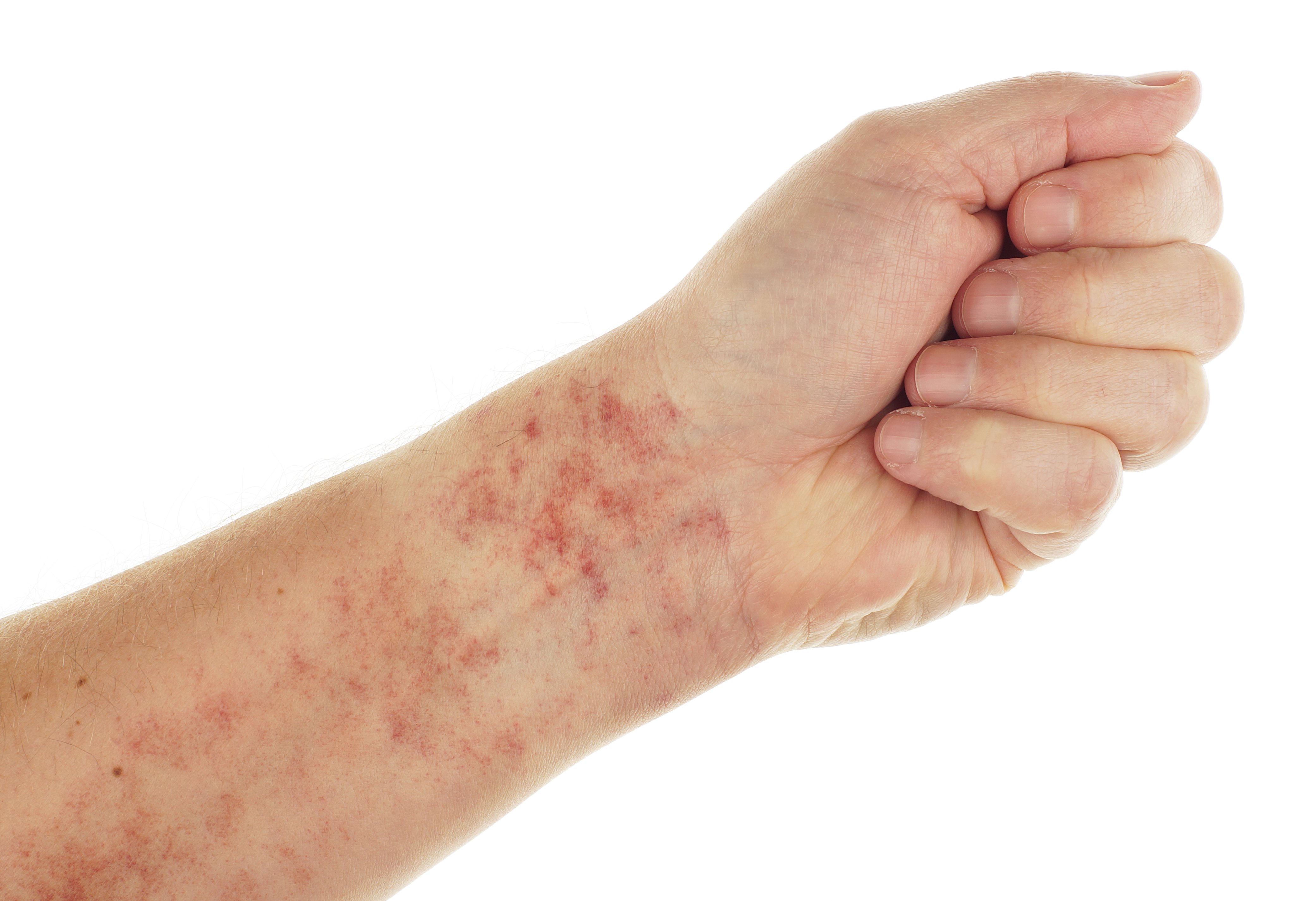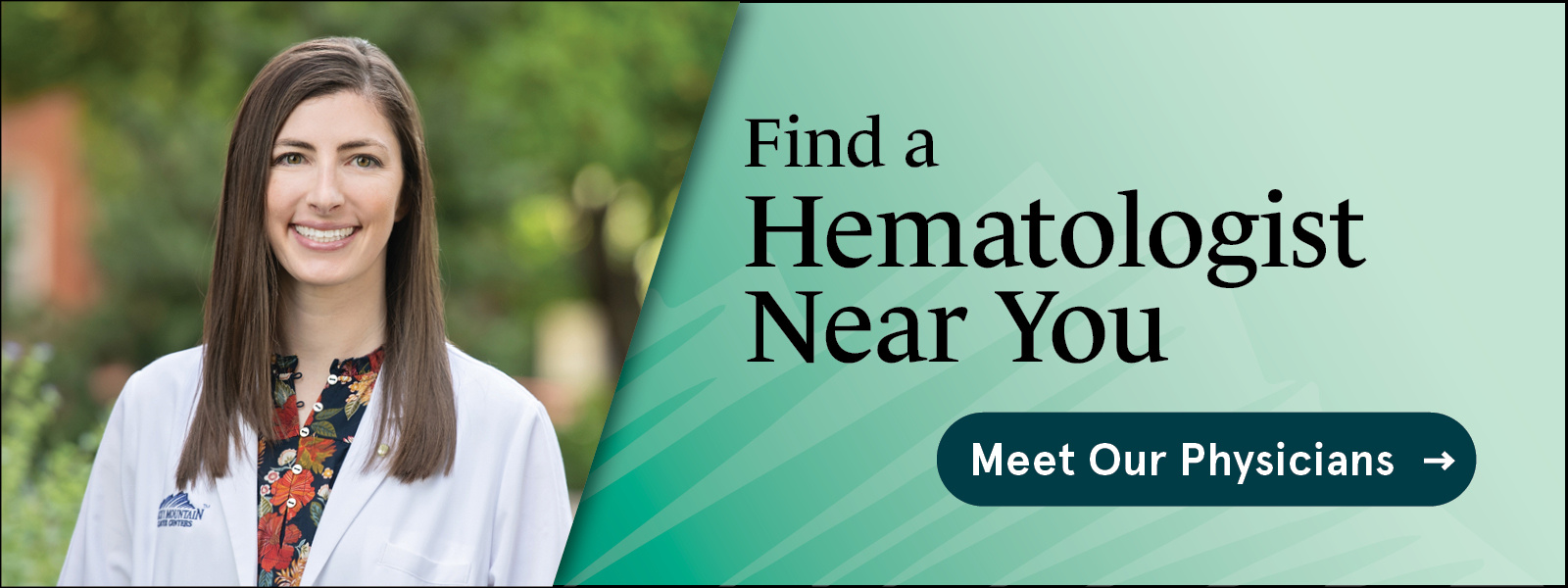Signs & Symptoms of Leukemia
While some people with leukemia will experience obvious signs of the disease, others won’t notice any changes at all — which, oftentimes, is dependent on the type of leukemia they have (acute or chronic).
Typically, acute myeloid leukemia (AML) and acute lymphocytic leukemia (ALL), tend to have a quick onset and can show more and recognizable symptoms early in the disease, whereas the chronic (slow onset) leukemias, chronic myeloid leukemia (CML) and chronic lymphocytic leukemia (CLL), tend to have delayed or mild symptoms.
This means that if you start to notice anything unusual it's good to go see your doctor to talk about it. It could be something simple. But if the symptoms are linked to a leukemia diagnosis, it's always better to start treatment sooner rather than later!
What Are the General Symptoms of Leukemia?
While there are more specific symptoms for each type of leukemia, there are some general signs and symptoms they share. Some general symptoms of leukemia include:
Fever, chills
Fatigue
Loss of appetite
Headaches
Unexplained weight loss
Night sweats
Bone/joint pain
Abdominal discomfort
Petechiae (small red spots under the skin)
Less Common Symptoms of Leukemia
Other potential symptoms may include:
- Vomiting
- Pale skin
- Aches in the arms, legs, or hips
- Swollen gums
- Swollen lymph nodes
- Enlarged spleen or liver

Related Reading: Early Symptoms of Leukemia
Early symptoms of leukemia can vary depending on the type of leukemia and are often easily confused with other, more common, illnesses.
Symptoms Specific to Each Leukemia Type
As mentioned earlier, specific types of leukemia have specific symptoms. In this section, we’ll talk about what those are.
Acute Myeloid Leukemia (AML)
AML is a fast-growing form of cancer of the blood and bone marrow. It is the most common type of acute leukemia.
- Frequent infections and fever
- Anemia
- Easy bleeding or bruising
- Joint and bone pain
Acute Lymphocytic Leukemia (ALL)
Most signs and symptoms of ALL are caused by a shortage of normal blood cells, which happens when leukemia cells crowd out normal blood-making cells. These specific blood issues, anemia (low red blood cells) leukopenia (low white blood cells), and thrombocytopenia (low blood platelets), typically show up on blood tests.
- Weakness
- Dizziness or lightheadedness
- Shortness of breath
- Fever
- Recurring or chronic infections
- Bruising easily
- Blood clotting issues such as frequent or severe nosebleeds and bleeding gums
Chronic Lymphocytic Leukemia (CLL)
CLL most commonly affects older adults and most people have no early symptoms. Learn more about chronic lymphocytic leukemia.
- Tiredness
- Shortness of breath
- Decreased appetite or feeling full without eating much
- Night sweats
- Unexplained weight loss
- Enlarged spleen and/or lymph nodes
- Recurring or chronic infections in areas such as the skin, lungs or kidneys
Chronic Myeloid Leukemia (CML)
Unlike the three other main types of leukemia, CML has a significant difference that sets it apart from the rest. In most cases, patients with CML have a gene mutation called the Philadelphia (Ph) chromosome. Typically, CML symptoms are vague and caused by other things.
- Weakness
- Fatigue
- Unexplained weight loss
- Night sweats and/or fever
- Bone pain
- Abdominal pain or sense of “fullness”
- Enlarged spleen
When to Visit the Doctor
It’s important to remember that these symptoms don’t always mean cancer. Sometimes, they are the result of something else entirely. With that said, they shouldn’t be ignored.
Even though some leukemia symptoms, such as fever, vomiting, fatigue, aches and night sweats often resemble the cold, flu or other common illness, it’s important that you pay attention to them. If these symptoms don’t go away at a normal pace (1-2 weeks), or you notice a combination of these symptoms at one time, Rocky Mountain Cancer Centers recommends that you make an appointment with your primary care physician who will likely start with some blood tests to see what may be the root cause.
